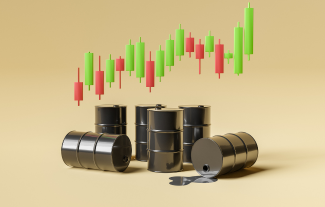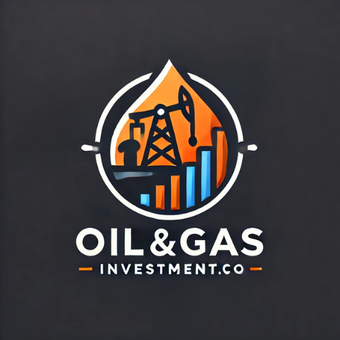For Accredited Investors Considering Investing in Oil Wells
There are many potential benefits available to accredited investors when investing in oil and gas private placements, such as the following:
Receive Tax Deductions
Many tax advantages are available through investing in the oil and gas industry, coming from tangible and intangible drilling costs, royalty interest and depletion allowances. In fact, many investors see a hedge to the risks in oil investments coming from the major tax breaks they receive.
First year deductions could comprise up to 80% of of an investors commitment. Intangible Drilling Costs (IDCs) may be fully tax deductible in the year incurred for qualified investors. Up to 15% of an oil wells gross annual production may be tax free in perpetuity through what's called a depletion allowance.
Accredited investors can participate in investments that offer tax benefits and the cash flow of a business venture through Direct Participation Programs, often these take form in royalty interest or working interest.
Create another Revenue Stream
With a reputable and experienced oil and gas company, you can very possibly generate passive income through direct participation in producing oil and gas wells. Whether price of oil rises or falls, many investors consider an oil and gas project a viable option for their investment portfolio because he oil industry is crucial to the global economy and serves as a primary fuel source worldwide.
Shield from Stock Market Fluctuations
The income you generate from oil production is not directly linked to stock market prices fluctuating in the energy sector or crude oil prices going up and down. Investment capital often goes to fund the operations and exploration of the oil and gas wells.
US Policy Changes, More Incentives, & More Exploration
The overall market for oil is subject to global supply and demand factors, geopolitical considerations, and government actions. With obvious reasons such as transportation and gasoline, the utility of oil really effects the price of all consumer goods.
Now with President Donald Trump back in office, the U.S energy policy and focus has shifted, to becoming a more energy dependent nation. Rather then just investing in green energy and natural gas, there is stronger emphasis and incentivization on drilling and exploration in U.S oil and gas wells and reserves.
As regulations are getting cut, that were aiming to help climate change and slowing down process of exploration and production, this will help the Oil and Gas industry in multiple ways.
With a large untapped supply of oil and gas, the entire industry should benefit well with less regulation and more capital flowing into the market.
Get Information on Oil Investment Opportunities Today
An opportunity for accredited investors to include valuable oil and natural gas assets to their portfolio and decrease their tax burden significantly.
Get in touch with us today for more info!
Oil Production and Technology Advancements
Oil and Gas drilling, exploration, and management in the past was much more difficult to generate consistent results. With recent advancements in technology, many of the common risks that have traditionally come with drilling for oil wells in oil and gas fields have been eliminated, which increases access to crude oil.
With major advancements in AI, Big Data, and Drone technology, it reshapes oil and gas exploration and production entirely with more efficient drilling strategies and anticipation for machinery maintenance, suddenly an oil and gas investment, for many, becomes a more viable option to consider for their investing portfolio.
What is Direct Participation or Direct Investment?
This is a strategy which can reduce the overall financial burden and risk to any single investors by pooling capital from a group of multiple investors who are funding the oil and gas project and it's operations.
Profit is shared to investors based on the size of their investment and the risk is diversified throughout the group proportional to their investments.
Who's Allowed to Invest in Oil Wells?
Investing in oil and gas private placements requires the investor to be accredited investor, meaning they are allowed to participate in investments not registered with the U.S. Securities and Exchange Commission.
To qualify, one must have a net worth of at least $1 million, excluding their residence’s monetary value, or more than $200,000 in earned income in the previous two years, with the expectation of the same earnings.
Different Ways to Invest in Oil and Gas Industry
When it comes to the energy sector, there are many different ways to get involved and here are some of the different alternatives to consider for exposure in oil and gas:

Direct Investment or Participation
This investment structure allows investors own a fraction of an oil well, commonly referred to as working interest, therefore directly participating in all of the income, gains, losses, tax benefits which come with oil and gas exploration and production. These types of oil and gas projects typically involve drilling new oil and gas wells, reworking current oil wells, or investing directly into producing oil and gas wells.

Buying Mutual Funds or ETFS
One of the benefits possible from buying etfs or mutual funds is it can be a more liquid way to get involved in the energy sector and it is not a direct link to spot prices of oil, however, these etfs do have potential to react to variation and market volatility of oil prices.

Investing in Oil and Gas Companies
There are many different large cap and micro cap publicly traded companies on the stock market, which will offer exposure to the energy / oil and gas sector. Some examples may include, ExxonMobil, Chevron, ConocoPhillips or Marathon Oil. Many of these are involved in oil exploration, you'll want to do your own research of course when it comes to making a choice between them. Due to the liquidity risk in an oil and gas investment, purchasing oil stock in public companies is another attractive option for exposure in oil and gas.

Oil Futures
These are a derivative security which give direct exposure to crude oil market. These can be used as speculation of oil prices or also a hedge to potentially minimize any loss or adverse price movements.
Benefits of Investing in Oil and Gas
Just a few more reasons why you should consider looking into an investment in oil and natural gas
Portfolio Diversification
Many qualified investors look to alternative investments such as oil and gas ventures as a hedge to their current investments they make have in the stock market. Through oil royalties, an investor can diversify their portfolio through spreading the risk across different producing oil wells.
Passive Income
Royalty interest can be a great way for oil investors to generate cash flow from a percentage of revenue from the overall lifespan of the oil well, without bearing risk to drilling and operational expenses like production costs. Working interest is a different structure in oil and gas investments where owners will receive their share of revenue after operational expenses are deducted, which offers tax advantages to the investor. There can be a higher risk associated with working interest, due to any drilling failures or overran expenditures but their is potential for higher returns and faster profit realization.




